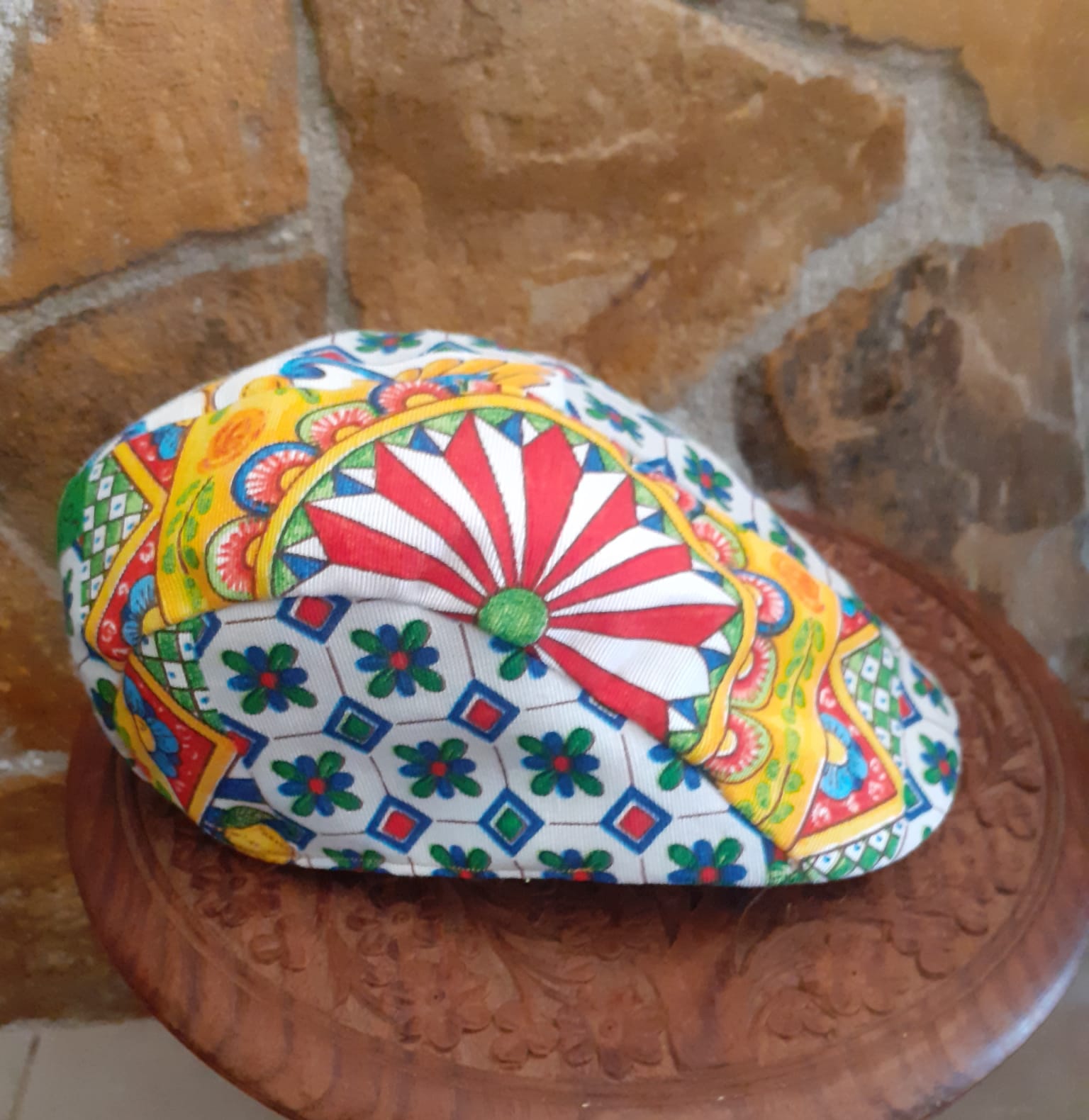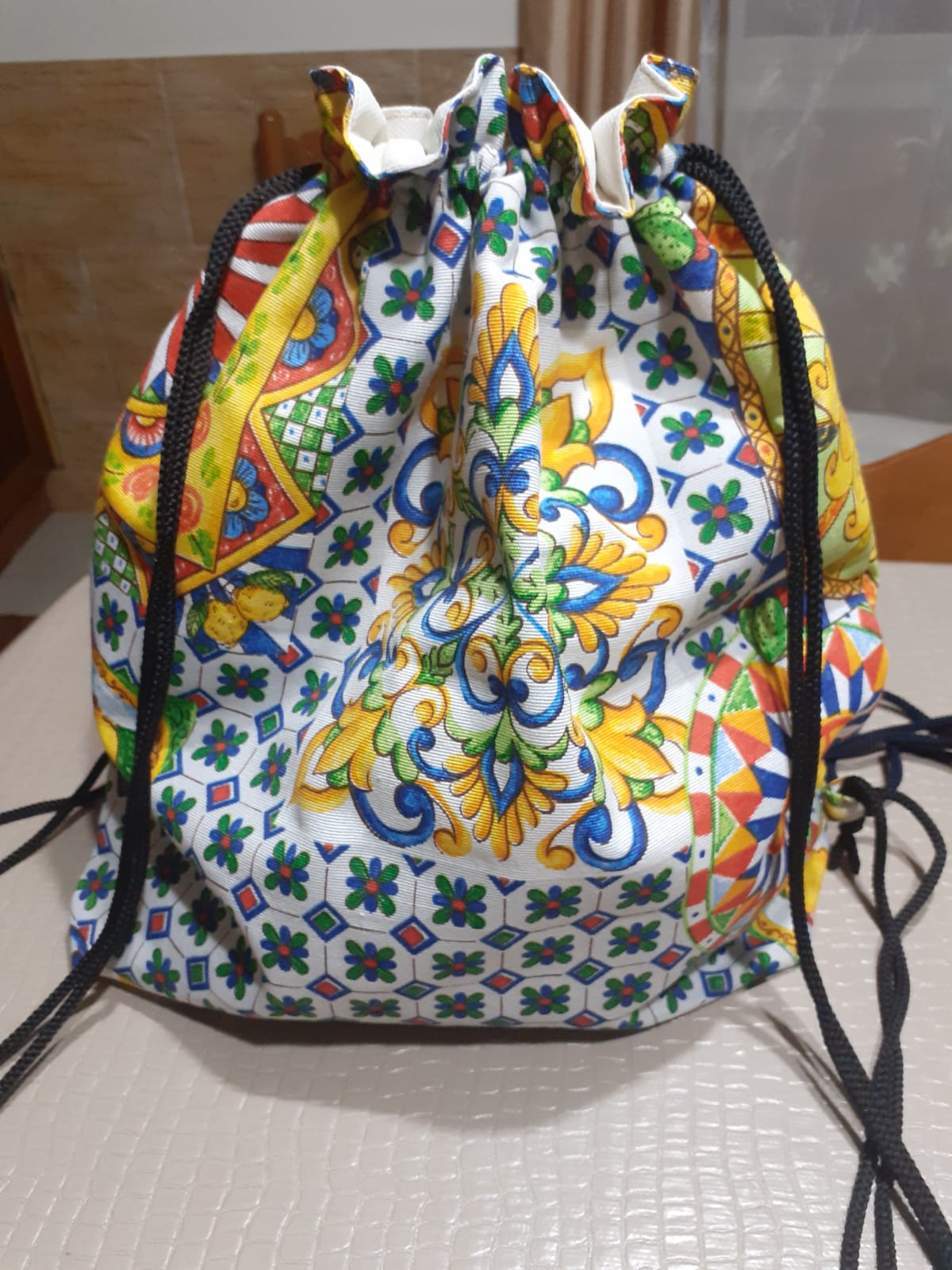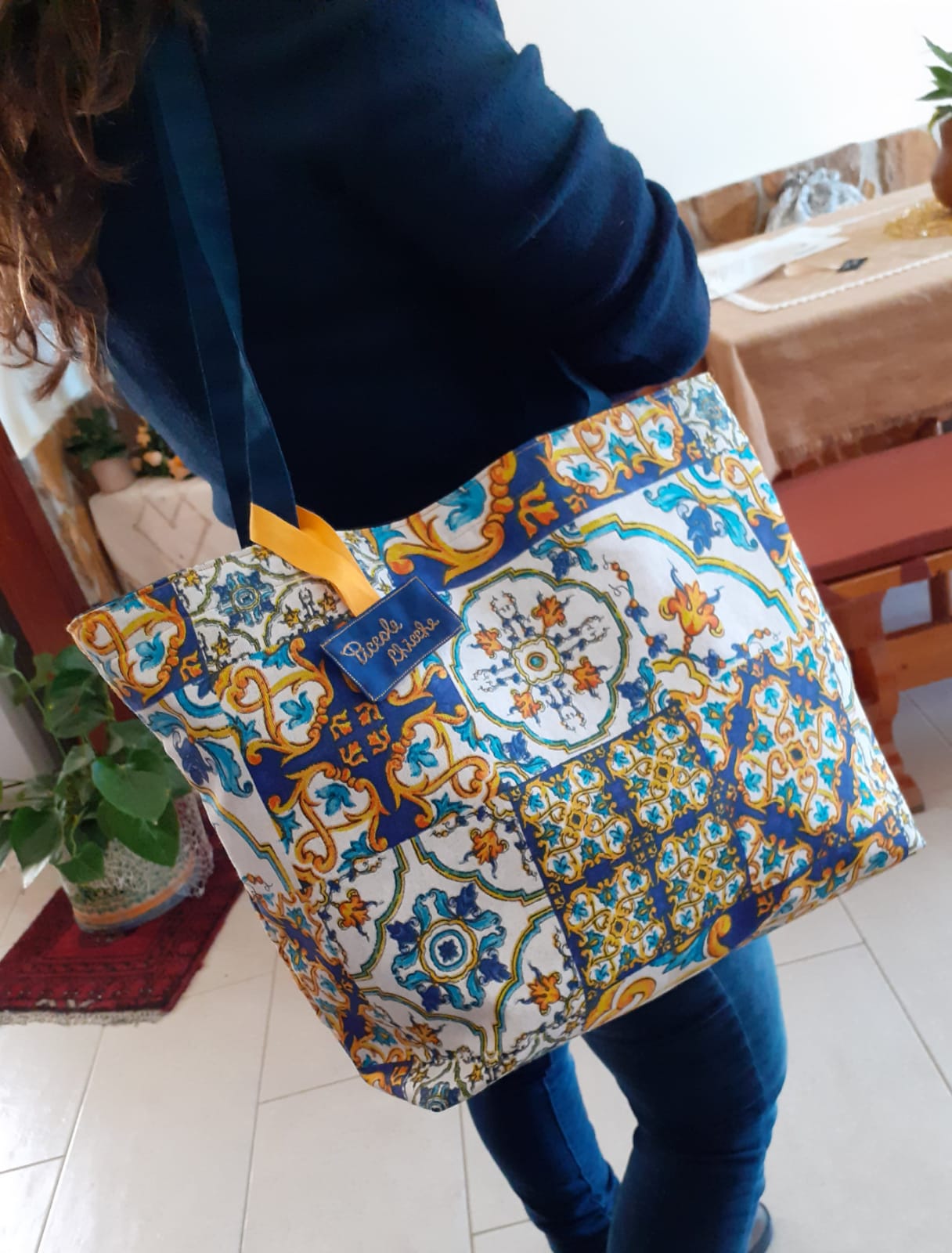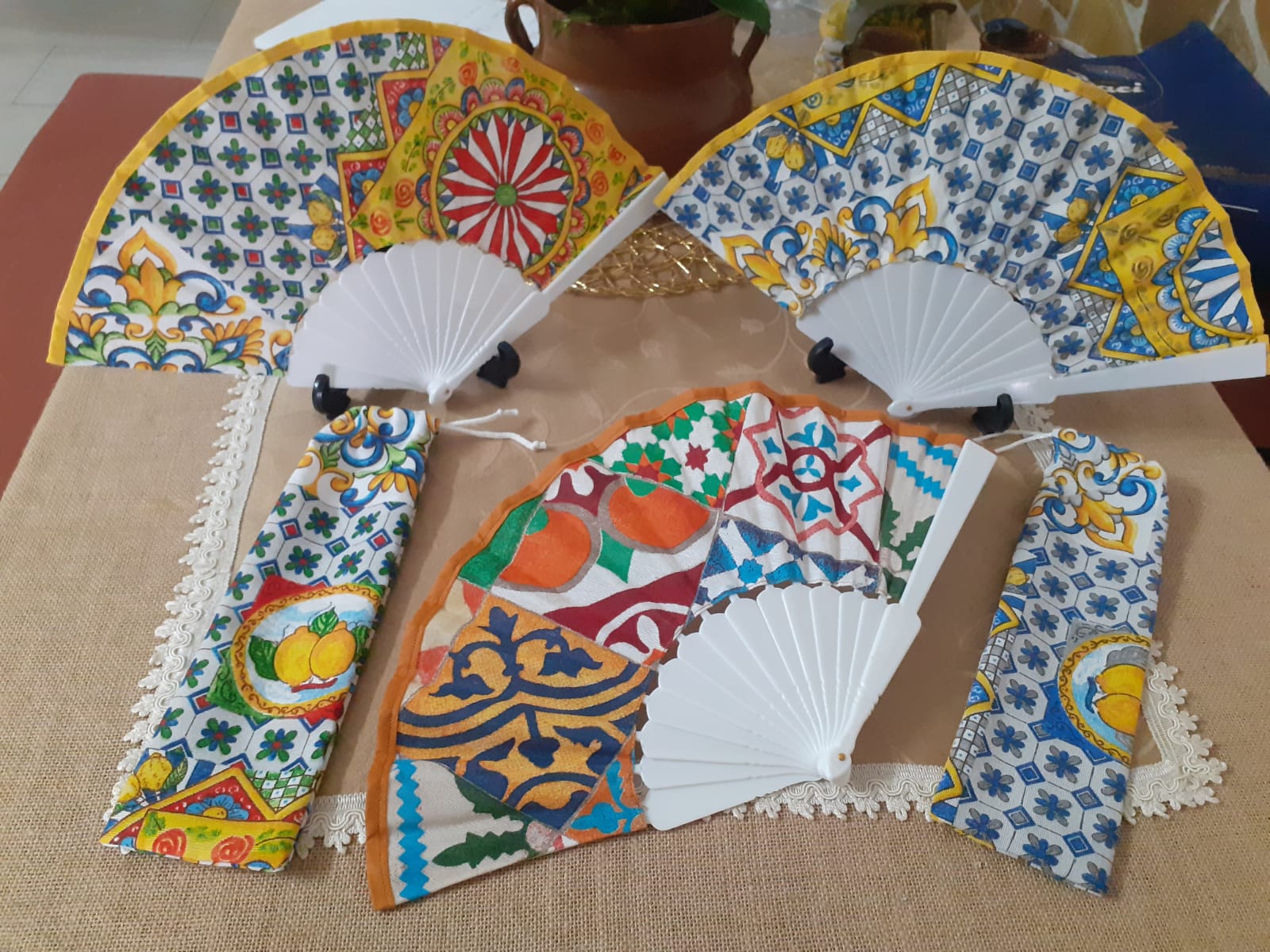Until the 1970s, they were the "invisible" ones. Silently and facelessly, Sicilian embroiderers adorned the shop windows of luxurious stores in Milan, Venice, Florence, and Rome.
Their embroideries embellished bed sheets, tablecloths, curtains, handkerchiefs, and wedding dresses.
But revealing their origin was strictly prohibited. Most of them came from unknown Sicilian villages.

Their provenance? It was better to indicate locations such as Flanders, Burano, and Cantù.
Nevertheless, the art of Sicilian embroiderers held immense value. It boasted ancient traditions dating back to the Arab and Byzantine Middle Ages. Their creations were highly sought after in the markets of the southern and eastern Mediterranean basin.
It was a technique passed down from mother to daughter or learned in workshops run by the so-called "mastre," secular or convent nuns.
Beyond being the result of skilled hands, these works were above all the tangible outcome of intellectual knowledge.
It is called tradition, defined by a common manual of ethnology as the material culture of a people.
However, this culture was undervalued and subjected to colonization, just like many other Sicilian products. Like wine, for example, which found a market only under false pretenses. They called it "mosto muto" (mute must), but it spoke volumes in giving strength and value to the poor musts of the North.
Economically, such a system has a specific name: colonialism.
The well-established system of embroidery also followed the path to the North. Periodically, intermediaries reached the alleys and cottages of Sicilian villages to order and collect the merchandise.
Paradoxically, they were perceived as "benefactors." The meager lire they received helped supplement their modest family budgets.

It all seemed to be destined to last. However, the early 1970s were revolutionary years. Everything was questioned, in schools, factories, fields. The winds of change also swept through Sicily.
In the Sicilian hinterland, what was called "the revolt of the embroiderers" erupted. It was a fight led entirely by women, denouncing the exploitation they endured. An authentic feminist claim. Today, it would be called a struggle for guaranteed minimum wage.
Even in Salemi, the artisans made their voices heard in an original way.
They organized an exhibition of their creations at the ARCI headquarters on Via dei Mille. They filled a salon of over 200 square meters. The event received so much attention that it was even visited by Pancrazio De Pasquale, the President of the Sicilian Assembly at the time.
Following the revolt of the sulfur miners, the struggles of the embroiderers unveiled a world of previously unknown exploitation. It was "discovered," for example, that a significant portion of the fashion industry relied on the low wages of women's labor and that there were numerous workshops where they worked illegally on behalf of major brands.
Those struggles led to a law. Finally, home-based work would be regulated. A minimum hourly wage of at least 150 lire was established.
"Made the law, found the deceit," as an old and disheartening saying goes. And then, isn't Sicily the land where everything changes to remain the same?
A sad consideration, but unfortunately, true.

The hated Northern middleman was no longer seen. Their place was taken by a few older embroiderers: the "ladies," as the apprentices called them. From that moment on, they would manage the business.
From this infernal cycle, Anna Maria La Grassa, the protagonist of our story, gained the awareness and strength to break free after being part of it for several years.
At just 15 years old, she was already a skilled embroiderer. She had attended courses and then inevitably entered a period of dependence on the "mastra." She was always driven by her passion and strong determination. In return, she received meager pay and never a smile of appreciation or a certificate of skill. Undoubtedly, a tactic to devalue the worth of their work. However, every time, the delivery of work for Anna Maria was an authentic torment.
Then came the awakening and turning point. She decided to take a leap and venture into autonomy, relying on the direct judgment of the public without intermediaries.
The triggering cause was COVID-19. From the obligation of the infamous masks, the idea emerged to exorcise an object that evoked clinics and hospital corridors.
Why not create personalized, colorful masks with embroidered images on request? The idea was a success. Within weeks, hundreds of masks flew off the shelves. All meticulously crafted by hand with the help of an old but reliable Singer sewing machine.
Good ideas are like cherries. One leads to another. After the masks, dozens of other items followed.
It was a broad production characterized by an unmistakable and immediately recognizable style. Authentic craftsmanship, which arises when creative imagination and quality materials come together.
Quality craftsmanship is destined to experience significant growth. Today, consumers who want to stand out no longer purchase well-known brands. They choose tailor-made shoes, clothes, bags, hats, and various accessories.
Paradoxically, in an era of great digital technology expansion, artisanal work is once again appreciated as a synonym for quality, distinction, and excellence. It has become the anti-product, standing out from the masses. That's why it appeals to people.
Art and craftsmanship are interrelated: they share the same origin. It is no coincidence that they have the same etymology.
The initiative undertaken by Anna Maria La Grassa, the protagonist of our story, is destined to succeed in every aspect.
The catalog (of which we publish some photos) of "Piccole Chicche" (Little Gems), the name of the product line, is rich and features the fantastic colors of Sicily. It ranges from brightly colored Sicilian flat caps to handbags for leisure and shopping, fans, ties, and more.
Several establishments have provided exhibition spaces, including the Salemi Pro Loco.


 Sezioni
Sezioni
























